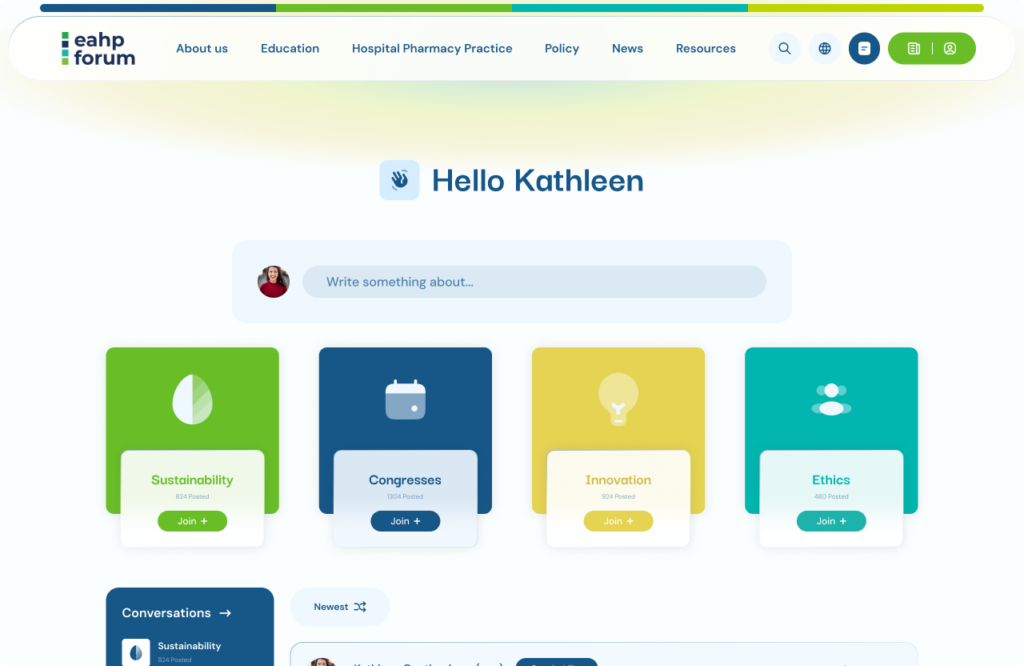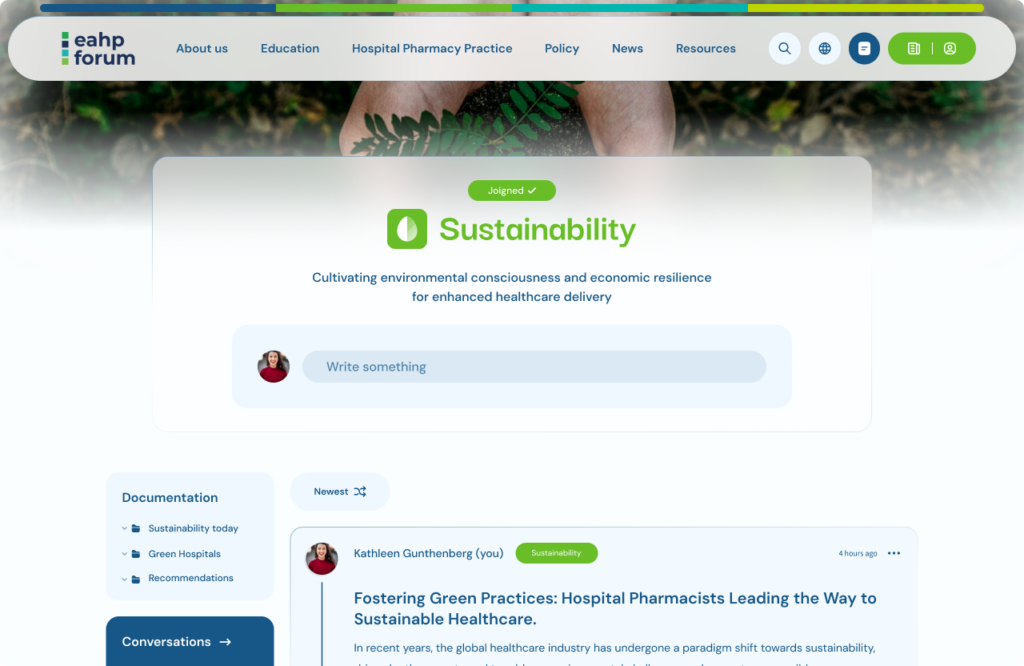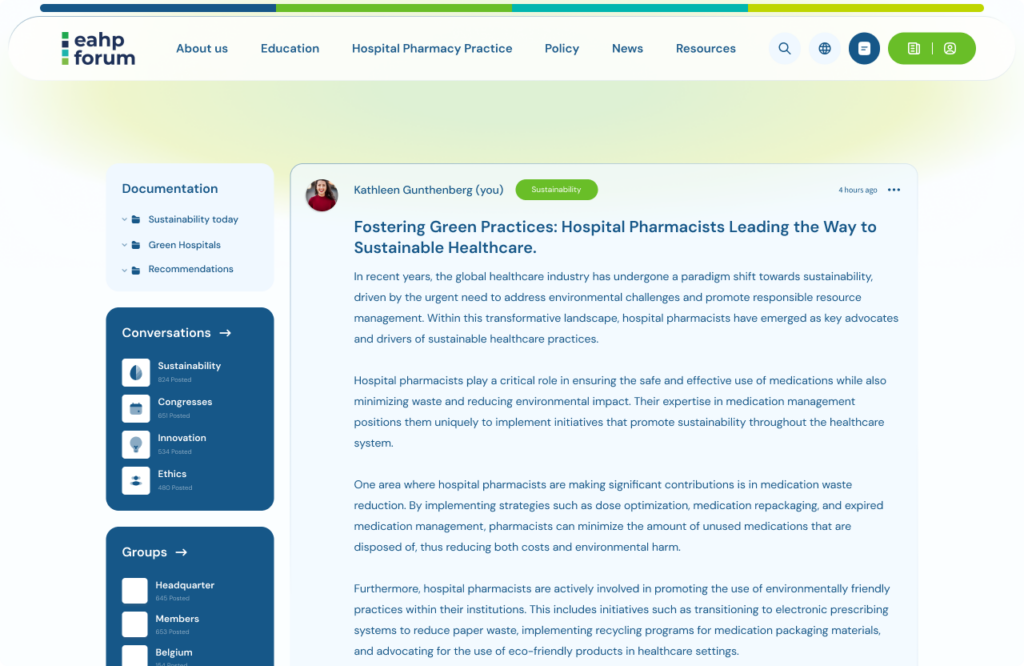
The EAHP EU Monitor is a regular round up of news relevant to hospital pharmacy in Europe.
You can subscribe to receive the EAHP EU Monitor by email here.
(1).JPG) 50 days to Congress week – just days left to get early registration discount!
50 days to Congress week – just days left to get early registration discount!
With just 50 days until the week of the 19th Congress of the EAHP in Barcelona, Congress organisers are delighted to publish the full schedule of keynote speakers, workshops, symposiums and satellite events. And with just days remaining until the early Congress registration fee deadline closes, EAHP is urging hospital pharmacists not to miss the chance of obtaining a discount!
More information here.
European Commission consults on future EU patient safety actions

The European Commission is consulting on future EU level actions to be taken in regard to the improvement of patient safety.
Specifically, the consultation asks:
- Whether patient safety measures included in the Recommendation 2009 are implemented and contribute to improving patient safety in the EU;
- Which areas of patient safety are not covered by the Recommendation and should be;
- What should be done at EU level on patient safety beyond the Recommendation;
- Whether quality of healthcare should be given more importance in the future EU activities.
The consultation closes on 28th February 2014.
EAHP will make a response from the perspective of the hospital pharmacy, highlighting opportunities for patient safety improvement from EU actions in areas such as:
- medicines bar coding;
- potential improvements to European systems of pharmacovigilance and the regulation of medical devices;
- transparency of information about clinical trials; and
- a number of other key areas.
Information here.
.jpg) European Parliament Committee approves 3bn euro public-private partnership with industry on new medicine development
European Parliament Committee approves 3bn euro public-private partnership with industry on new medicine development
The Industry and Research Committee (ITRE) of the European Parliament has approved the second package of the Innovative Medicines Initiative (IMI 2).
IMI2 is a Joint Technology Initiative (JTI) between the European Union and the pharmaceutical industry association EFPIA worth 3bn euro and aims to deliver:
- a 30% better success rate in clinical trials of priority medicines identified by the WHO;
- clinical proof of concept in immunological, respiratory, neurological and neurodegenerative diseases in just five years;
- new and approved diagnostic markers for four of these diseases and at least two new medicines which could either be new antibiotics or new therapies for Alzheimer’s disease
Following the Committee vote, the package will now be voted on by the entire European Parliament in April 2014.
More information here.
WHO publications on palliative care, TB and newborn mortality
.jpg) From 20th to 24th January 2014 the World Health Organization (WHO), the directing and coordinating authority for health within the United Nations system, held a meeting of its Executive Board and made public a number of strategic documents in advance of the 67th World Health Assembly in May 2014.
From 20th to 24th January 2014 the World Health Organization (WHO), the directing and coordinating authority for health within the United Nations system, held a meeting of its Executive Board and made public a number of strategic documents in advance of the 67th World Health Assembly in May 2014.
Highlights to note from the hospital pharmacy perspective include:
- The publication of a report suggesting 9 out of 10 people in need of palliative care to relieve the pain and symptoms of a life-threatening illness are not receiving it
- The finalisation of a post 2015 global TB strategy and targets to go the 67th World Health Assembly in May 2014
- The publication of a draft global action plan aimed at reducing newborn mortality (open for consultation until 28 February)
Palliative care
The Global Atlas of Palliative Care at the End of Life, published by the World Health Organisation and the Worldwide Palliative Care Alliance (WPCA), found that only 20 countries have palliative care firmly integrated into their healthcare systems. According to the report, the European region has the highest rate of patients (per 100,000) who need this care, and in older adults they commonly suffer from Alzheimer’s, Parkinson’s, chronic respiratory diseases, cardiovascular diseases, diabetes, rheumatoid arthritis and cancer. Providing palliative care may also be needed for children suffering from congenital anomalies, followed by neonatal conditions, protein energy malnutrition, meningitis, HIV/AIDS and cardiovascular diseases. In the report it is stated that the vast majority of health professionals worldwide have little or no knowledge of the principles and practices of palliative care, and calls for mandatory training in medical schools and highlights 12 professional journals devoted to this aspect of patient care. A key barrier to providing palliative care is highlighted as access to the effective medicines especially opioids.
More information about the Global Atlas of Palliative Care here.
Post 2015 TB strategy
The WHO Executive Board endorsed and recommended, the post-2015 global TB strategy and targets and a resolution (in support of the strategy and targets) for consideration and adoption by the Sixty-seventh World Health Assembly (WHA) which meets in May 2014. The WHO state that HIV coinfection is the main reason there has been a failure to meet tuberculosis control targets in high-HIV prevalence settings and proposes actions to address this problem including enhanced cross border collaboration and countering the threats posed by drug resistance. The suggested target is to end the global tuberculosis epidemic by 2035 through a reduction in tuberculosis deaths by 95%, and in tuberculosis incidence by 90%.
More information here.
Newborn mortality action plan
Finally, the WHO also published a draft global action plan called ‘Every Newborn: an action plan to end preventable deaths’ (ENAP) for public consultation.
The plan states: “Life-saving commodities, including essential technologies, for women’s and children’s health should be included in every national essential medicines list and an uninterrupted supply chain to all facilities, especially the most peripheral health facilities, should be ensured. Medicines need to be appropriate for newborns, and investments need to be made by manufacturers to increase the availability of low-cost commodities that can be easily supplied and used in resource-poor settings.”
The final draft of the ENAP will be presented to Member States at the Sixty-seventh World Health Assembly, in May 2014. Consultation here.
.JPG) Congress preview: drug shortages seminar
Congress preview: drug shortages seminar
One of the hot topics in hospital pharmacy at the current time is how to resolve the increasing problem of medicines shortages experienced with the hospital sector across Europe. A 2013 survey by EAHP found 99% of hospital pharmacists across Europe experience the problem, 63% report it to be a weekly, sometimes daily, occurrence, and 77% consider that the problem has become worse in the last year.
The drug shortages seminar at the 19th Congress of the EAHP should therefore be a lively discussion aabout the causation of the problem and what actions hospital pharmacists can take to reduce negative impacts for patient care. Speakers will also explore the role of the European Medicines Agency, and other initiatives to deal with the problem at a European level.
The seminar takes place on Wednesday 26th March 2014 (2pm to 3.30pm) and Thursday 27th March (0830-1000am).
Information on the drug shortages seminar here.
Information on EAHP policy and advocacy activity on the topic of medicines shortages here.
.gif)
Journal highlight: An audit of antimicrobial treatment of lower respiratory and urinary tract infections in a hospital setting
The online first edition of the European Journal of Hospital Pharmacy has this week published an original research article on an audit of antimicrobial treatment of lower respiratory and urinary tract infections in a hospital setting.
Conducted in Antrim Area Hospital, Northern Ireland, a 426-bed district general teaching hospital, the results of the study led the authors to a number of recommendations in relation to antibiotic prescribing.
Full article here.





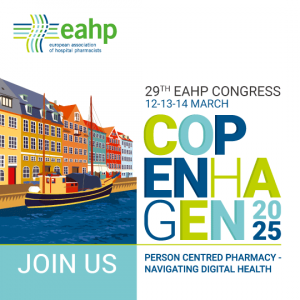
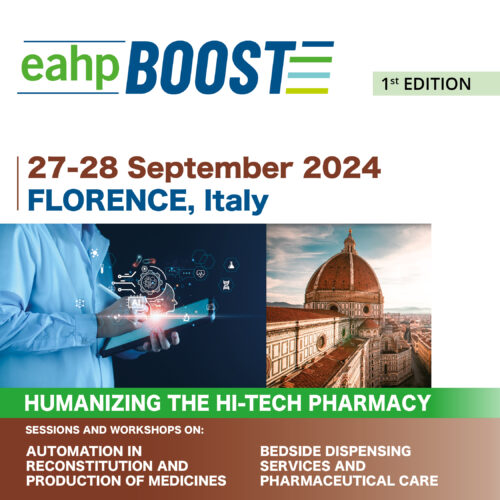


















.jpg) European Parliament Committee approves 3bn euro public-private partnership with industry on new medicine development
European Parliament Committee approves 3bn euro public-private partnership with industry on new medicine development.jpg) From 20th to 24th January 2014 the
From 20th to 24th January 2014 the .gif)
